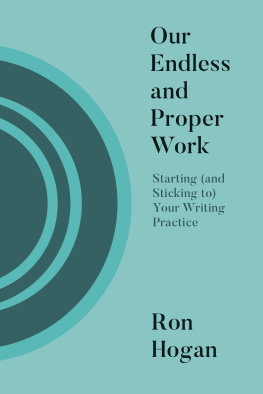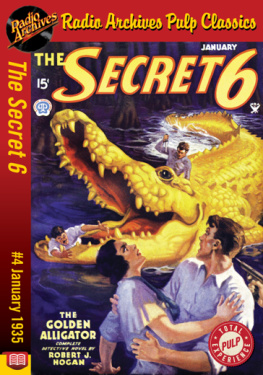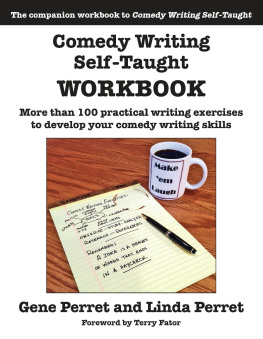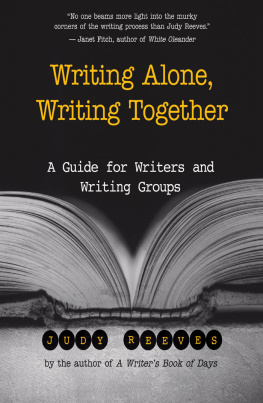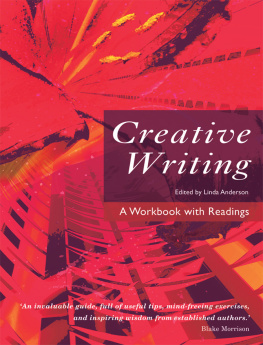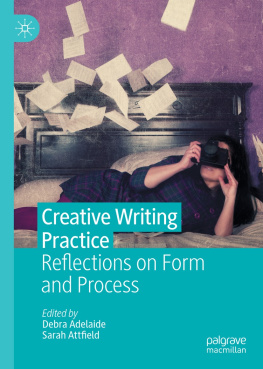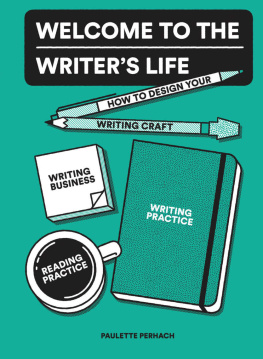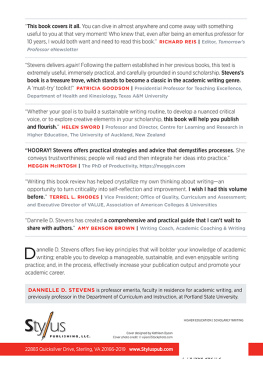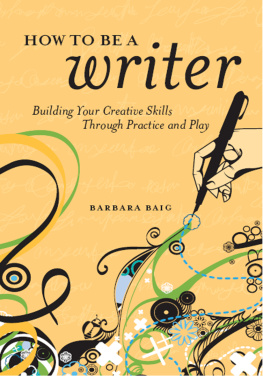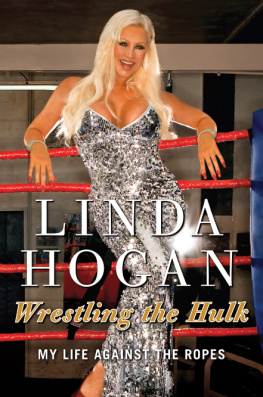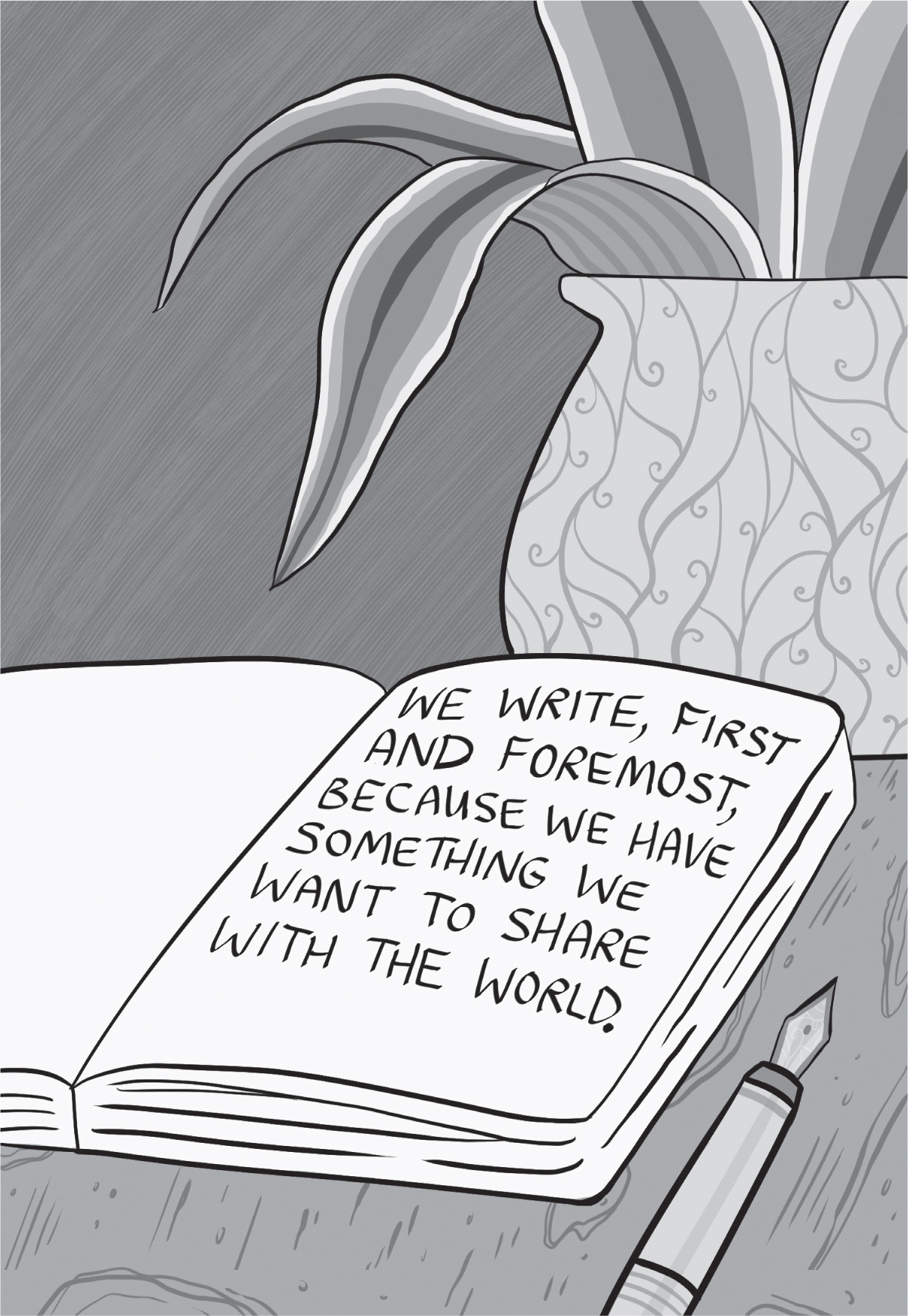Table of Contents
Guide
Copyright 2021 by Ron Hogan
All rights reserved. This book or any portion thereof may not be reproduced or used in any manner whatsoever without the express written permission of the publisher except for the use of brief quotations in a book review.
Printed in the United States of America
First edition 2021
1 2 3 4 5 6 7 8 9
ISBN: 978-1-948742-94-8
Belt Publishing
5322 Fleet Avenue
Cleveland, Ohio 44105
www.beltpublishing.com
Cover art by David Wilson
Book design by Meredith Pangrace
Thanks, Laura!
TABLE OF CONTENTS
T his book emerged out of a newsletter I launched in 2018 called Destroy Your Safe and Happy Lives, an allusion to the opening line of a Mekons song that sounded a lot more exuberantly rebellious before the COVID-19 pandemic knocked the entire planet off balance.
I earn a living partly through editorial consulting work, which is pretty much exactly what it sounds like: Ill read a clients manuscript, then offer feedback on whats working and what isnt working, so they have some good ideas about how to approach their next draft. As theyre reviewing my notes, and deciding whether or not they want to move forward, theyll often ask: Would it be worth it? Do you think this is publishable?
The end goal for aspiring writers always seemed to be getting a book deal or getting published, and the more I thought about it, the more I realized I wasnt entirely happy about that. The newsletter was a way for me to address that issue.
Dont get me wrong: Being a professional writer is one of the best jobs around, even though it can be one of the hardest. Its certainly one of the most fulfilling jobs Ive ever had, emotionally if not always financially. If you can do it well, and do well at it, you absolutely should.
But the real value of writing isnt in the money you can make doing it. We accept a certain recreational value for all sorts of creative endeavors without any thought of generating a new revenue stream for ourselves. Plenty of people want to learn an instrument without eying a career as a professional musician, or take up drawing or painting without expecting to end up with a gallery showcase. Start writing, though, and, before too long, if youre not asking yourself whether youre going to try to get published, the people around you who know youre writing just might.
Why, though? Why is it considered normal to develop a technical proficiency at, say, painting watercolors just for the fun of expressing yourself creatively, while writing is expected to earn its keep, so to speak? What if we thought about writing as a personal process of self-discovery, a way of gravitating towards stories and themes you feel passionately about and learning more about those passions as you go alongand learning how to share that passion with others?
Again, Im not judging anybody for wanting to make money by being a writer, not least of all because thats a path Ive chosen at various points in my life. Youll notice, for example, that Im not giving this book away. If youre just looking to make money, though, theres so many easier ways to do it. And although I concede the possibility that you can write a commercially viable book, maybe even more than one, without going through the process of self-discovery, I have to tell you it doesnt seem like it would be personally fulfilling.
(No, really, I have to tell you that, and believe it. Otherwise Im gonna go into an existential tailspin.)
Ultimately, I suppose, Is this ever going to be publishable? is not all that different a question from Can I share this with readers? Its just a matter of emphasis, after all. But when youre just starting out, when you dont have any contractual commitments, when its just you and the empty screen or the blank sheet of paper, its the second question that will lead you to better writing... and make it easier, if you ultimately decide to seek publication, for your book to wind up in someone elses hands.
Thats what this book is about.
I n February 2020, the Authors Guild issued a report called The Profession of Author in the 21st Century. At its heart, the report was a stark warning that the career of full-time professional author has become endangered, and the economic reality it outlined to drive that point home was staggering: The median book-related income for a full-time writer in 2017 was just $20,300, and most writers werent even doing that well. In fact, 54 percent of those surveyed reported the income their books generated that year was less than the federal poverty benchmark of $12,488.
Some writers fared better, of course. The top 10 percent of the survey respondents reported a median book-related income of $167,000. (Remember, a median isnt an average, its a midpointso the actual incomes those high-performing writers claimed for themselves ranged from $84,200 all the way up to $9,300,000.) At the opposite end of the spectrum, 20 percent of the writers polled said they hadnt made any income at all from their books that year.
The Authors Guild exists to advocate for the economic viability of the writing profession, and their report does an excellent job of reviewing the trends in the publishing and bookselling industries that have created this situation. Cultural trends, too: They note that people are readingand, more to the point, buyingfewer books than they used to, and, thanks to Amazon, expecting the books they do buy, especially the ebooks, to be cheaper than ever. That means less money for publishing houses, which leads to less money making its way to every writers bank account.
As the best-selling thriller writer Douglas Preston puts it, many aspiring writers may fall prey to what he calls censorship of the marketplace, abandoning their potential writing careers before theyve even really begun. They simply wont be able to afford to do it full-time, and theres little incentive to pursue a side hustle writing around your day job and all your other responsibilities and obligations when there are so many other, more relaxing ways to spend those few spare moments.
Long story short, if, as Samuel Johnson said, no man but a blockhead ever wrote, except for money, well, just about nobody but a blockhead would go into writing thinking they were going to be the rare person who can make a living wage from it.
But you know what? Thats fine.
If you want to be a writer because you want to make a lot of money, let me give you some advice: Dont. Go to business school, go to medical school, heck, go to law school. Or learn a trade. Youll probably do a lot better for yourself on any of those paths than you would as a full-time writer. You might even make enough money that you could dedicate some spare time to writing on the side.
If you want to become a writer so you can become famous, my advice to you is also: Dont. As a rule, book people dont get famous, although sometimes famous people get book deals. (As for the books that come out of those deals, well, its always a pleasant surprise when one of them turns out to be genuinely interesting.) Think about it: How many authors do you know that are actually celebrities? I dont mean that you know who they are because theyre your favorite authors, I mean

